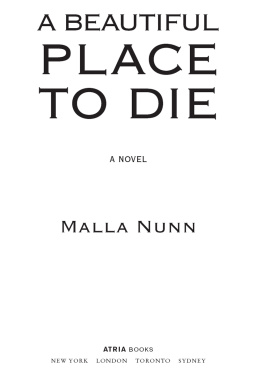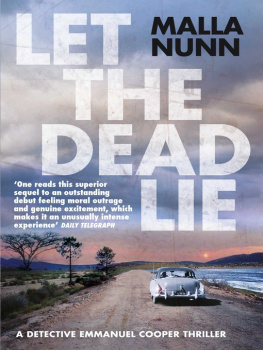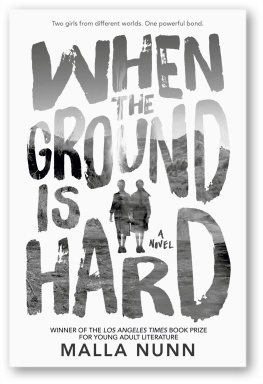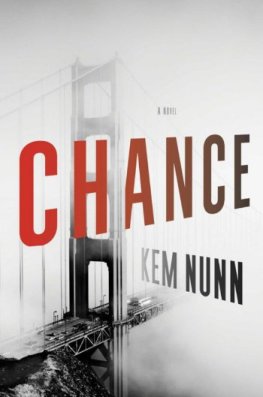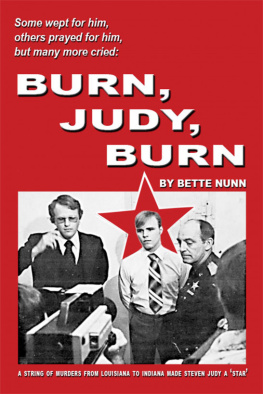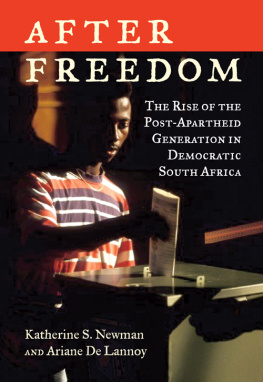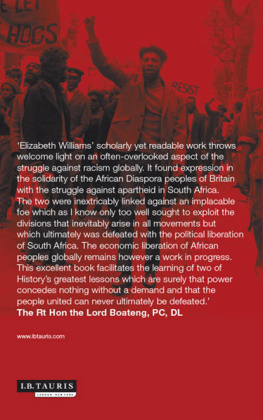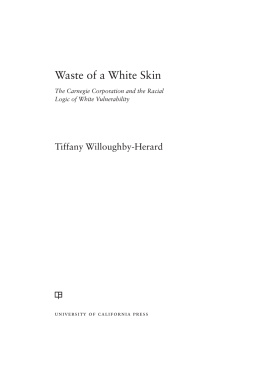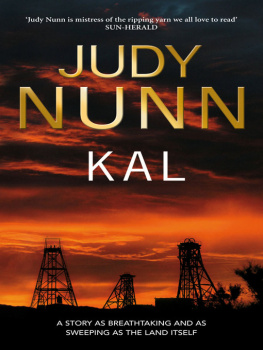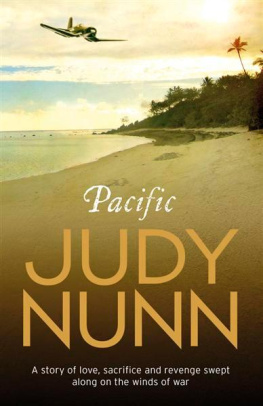This book is a work of fiction. Names, characters, places, and incidents either are products of the authors imagination or are used fictitiously. Any resemblance to actual events or locales or persons, living or dead, is entirely coincidental.
All rights reserved, including the right to reproduce this book or portions thereof in any form whatsoever. For information address Atria Books Subsidiary Rights Department, 1230 Avenue of the Americas, New York, NY 10020
ATRIA BOOKS and colophon are trademarks of Simon & Schuster, Inc.
Nunn, Malla.
A beautiful place to die: a novel / by Malla Nunn.
p. cm.
1. PoliceSouth AfricaFiction. 2. MurderInvestigationFiction. 3. South AfricaFiction. 4. South AfricaHistory19091961Fiction. I. Title.
PR9619.4.N86 2009
823'.92dc22 2008025858
S OUTH A FRICA, S EPTEMBER 1952.
D ETECTIVE S ERGEANT E MMANUEL Cooper switched off the engine and looked out through the dirty windscreen. He was in deep country. To get deeper hed have to travel back in time to the Zulu wars. Two Ford pickup trucks, a white Mercedes, and a police van parked to his right placed him in the twentieth century. Ahead of him a group of black farmworkers stood along a rise with their backs toward him. The hard line of their shoulders obscured what lay ahead.
In the crease of a hot green hill, a jumpy herd boy with fifteen skinny cows stared at the unusual scattering of people in the middle of nowhere. The farm was a genuine crime scene after allnot a hoax as district headquarters had thought. Emmanuel got out of the car and lifted his hat to a group of women and children sitting in the shade of a wild fig tree. A few of them politely nodded back, silent and fearful. Emmanuel checked for his notebook, his pen, and his handgun, mentally preparing for the job.
An old black man in tattered overalls stepped out from the band of shade cast by the police van. He approached with his cloth cap in his hand.
You the baas from Joburg? he asked.
Thats me, Emmanuel said. He locked the car and dropped the keys into his jacket pocket.
Policeman says to go to the river. The old man pointed a bony finger in the direction of the farmworkers standing along the ridge. You must come with me, please, ma baas.
The old man led the way. Emmanuel followed and the farmworkers turned at his approach. He drew closer to them and scanned the row of faces to try to gauge the mood. Beneath their silence he sensed fear.
You must go there, ma baas. The old man indicated a narrow path that snaked through tall grass to the banks of a wide, shining river.
Emmanuel nodded his thanks and walked down the dirt trail. A breeze rustled the underbrush and a pair of bullfinches flew up. He smelled damp earth and crushed grass. He wondered what waited for him.
At the bottom of the path he came to the edge of the river and looked across to the far side. A stretch of low veldt shimmered under clear skies. In the distance a mountain range broke the horizon into jagged blue peaks. Pure Africa. Just like the photos in English magazines that talked up the benefits of migration.
Emmanuel began a slow walk of the riverbank. Ten paces along he saw the body.
Within reach of the rivers edge, a man floated facedown with his arms spread out like a parachute diver in free fall. Emmanuel clocked the police uniform instantly. A captain. Wide shouldered and big boned with blond hair cut close to the skull. Small silver fish danced around what looked like a bullet wound in the head and another gash torn into the middle of the mans broad back. A thicket of reeds held the body fast against the current.
A blood-stiffened blanket and an overturned lantern with a burned-out wick marked a fishing spot. Bait worms had spilled from a jam can and dried on the coarse sand.
Emmanuels heart hammered in his rib cage. Hed been sent out solo on the murder of a white police captain.
You the detective? The question, in Afrikaans, had the tone of a surly boy addressing the new schoolmaster.
Emmanuel turned to face a lanky teenager in a police uniform. A thick leather belt anchored the blue cotton pants and jacket to the boys narrow hips. Wisps of downy hair grew along his jawline. The National Party policy of hiring Afrikaners into public service had reached the countryside.
Im Detective Sergeant Emmanuel Cooper. He held out his hand. Are you the policeman in charge of this case?
The boy flushed. Ja, Im Constable Hansie Hepple. Lieutenant Uys is on holiday in Mozambique for two more days and Captain Pretoriuswellheshes gone.
They looked over at the captain, swimming in the waters of eternity. A dead white hand waved at them from the shallows.
Did you find the body, Constable Hepple? Emmanuel asked.
No. The Afrikaner youth teared up. Some kaffir boys from the location found the captain this morninghes been out here all night.
Emmanuel waited until Hansie got control of himself. Did you call the Detective Branch in?
I couldnt get a phone line to district headquarters, the boy policeman explained. I told my sister to try till she got through. I didnt want to leave the captain by himself.
A knot of three white men stood farther up the riverbank and took turns drinking from a battered silver flask. They were big and meaty, the kind of men who would pull their own wagons across the veldt long after the oxen were dead.
Emmanuel motioned toward the group. Who are they?
Three of the captains sons.
How many sons does the captain have? Emmanuel imagined the mother, a wide-hipped woman who gave birth between baking bread and hanging up the laundry.
Five sons. Theyre a good family. True volk.
The young policeman dug his hands into his pockets and kicked a stone across the bank with his steel-capped boot. Eight years after the beaches of Normandy and the ruins of Berlin, there was still talk of folk-spirit and race purity out on the African plains.
Emmanuel studied the murdered captains sons. They were true Afrikaners, all right. Muscled blonds plucked straight from the victory at the Battle of Blood River and glorified on the walls of the Voortrekker Monument. The captains boys broke from their huddle and walked toward him.
Images from Emmanuels childhood flickered to life. Boys with skin white as mothers milk from the neck down and the elbow up. Noses skewed from fights with friends, the Indians, the English, or the coloured boys cheeky enough to challenge their place at the top.
The brothers came within shoving distance of Emmanuel and stopped. Boss Man, the largest of the brothers, stood in front. The Enforcer stood to his right with his jaw clenched. Half a step behind, the third brother stood ready to take orders from up the chain of command.
Wheres the rest of the squad? Boss Man demanded in rough-edged English. Where are your men?
Im it, Emmanuel said. There is no one else.
You joking me? The Enforcer added finger pointing to the exchange. A police captain is murdered and Detective Branch send out one lousy detective?
I shouldnt be out here alone, Emmanuel conceded. A dead white man demanded a team of detectives. A dead white policeman: a whole division. The information headquarters received was unclear. There was no mention of the victims race, sex, or occupation

